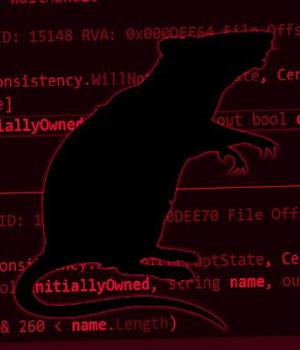Security News > 2022 > January > Hackers Use Cloud Services to Distribute Nanocore, Netwire, and AsyncRAT Malware

Threat actors are actively incorporating public cloud services from Amazon and Microsoft into their malicious campaigns to deliver commodity remote access trojans such as Nanocore, Netwire, and AsyncRAT to siphon sensitive information from compromised systems.
"From the use of cloud infrastructure to host malware to the abuse of dynamic DNS for command-and-control activities. Additionally, the layers of obfuscation point to the current state of criminal cyber activities, where it takes lots of analysis to get down to the final payload and intentions of the attack."
As with many of these types of campaigns, it all starts with an invoice-themed phishing email containing a ZIP file attachment that, when opened, triggers an attack sequence that downloads next-stage payloads hosted on an Azure Cloud-based Windows server or an AWS EC2 instance, ultimately culminating in the deployment of different RATs, including AsyncRAT, Nanocore, and Netwire.
Also noteworthy is the use of DuckDNS, a free dynamic DNS service, to create malicious subdomains to deliver malware, with some of the actor-controlled malicious subdomains resolving to the download server on Azure Cloud while other servers are operated as C2 for the RAT payloads.
"Malicious actors are opportunistic and will always be looking for new and inventive ways to both host malware and infect victims," Biasini said.
"The abuse of platforms such as Slack and Discord as well as the related cloud abuse are part of this pattern. We also commonly find compromised websites being used to host malware and other infrastructure as well and again points to the fact that these adversaries will use any and all means to compromise victims."
News URL
https://thehackernews.com/2022/01/hackers-use-cloud-services-to.html
Related news
- Chinese Hackers Target Linux Systems Using SNOWLIGHT Malware and VShell Tool (source)
- State-Sponsored Hackers Weaponize ClickFix Tactic in Targeted Malware Campaigns (source)
- Chinese hackers target Russian govt with upgraded RAT malware (source)
- Hackers Abuse Russian Bulletproof Host Proton66 for Global Attacks and Malware Delivery (source)
- Iran-Linked Hackers Target Israel with MURKYTOUR Malware via Fake Job Campaign (source)
- North Korean Hackers Spread Malware via Fake Crypto Firms and Job Interview Lures (source)
- Iranian Hackers Maintain 2-Year Access to Middle East CNI via VPN Flaws and Malware (source)
- Russian Hackers Using ClickFix Fake CAPTCHA to Deploy New LOSTKEYS Malware (source)
- Hackers Use TikTok Videos to Distribute Vidar and StealC Malware via ClickFix Technique (source)
- Hackers Use Fake VPN and Browser NSIS Installers to Deliver Winos 4.0 Malware (source)